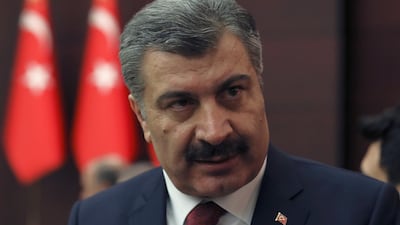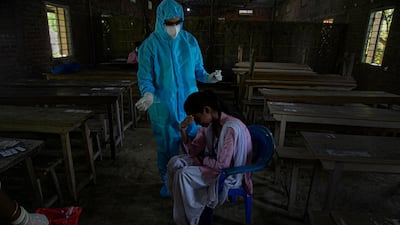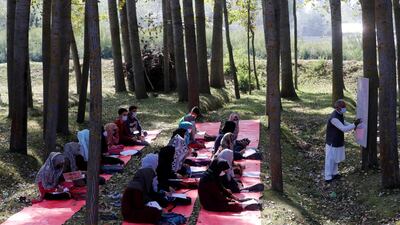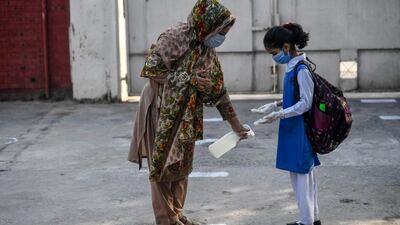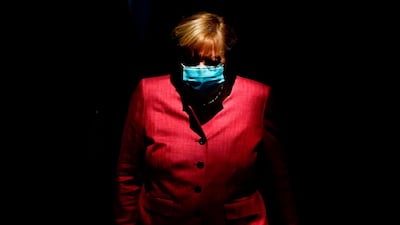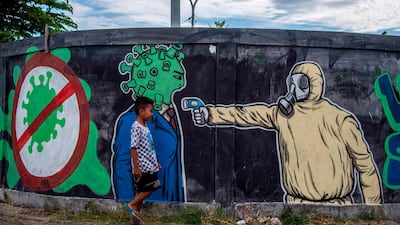Turkey's top medical association and main opposition party on Thursday criticised a decision by President Recep Tayyip Erdogan's government to only report new coronavirus cases if the patient is showing symptoms.
Members of the Turkish Medical Association and the Republican People's Party (CHP) said the policy, acknowledged late on Wednesday by Health Minister Fahrettin Koca, hides the true scale of the pandemic to keep the economy moving.
On Wednesday, Mr Koca appeared to acknowledge that the government did not publish the full number of daily positive Covid-19 cases when he said it only counts those who are symptomatic.
The association has warned of government underreporting for months.
"You have not led a transparent process," it said on Twitter. "You hid the truth. You did not prevent the pandemic from spreading."
After a summer dip, Turkey's official daily coronavirus cases rose in recent months to more than 1,700, matching levels in May when a partial lockdown was in place.
The tally shows daily cases fell in recent days to about 1,400, with 60 to 70 deaths.
Beginning on July 29, the Health Ministry began publishing the number of new daily "patients", which Mr Koca defined as symptomatic, rather than "cases", which he said showed the total number of positive tests.
While Mr Koca said the government did not disclose asymptomatic cases, he stressed that contact-tracing teams still isolated them and prevent the virus from spreading.
"Those in this group are not of primary importance for the pandemic," he said on Wednesday.
A study published last month in the journal PloS Medicine found that 20 per cent of infected people are asymptomatic.
Turkish doctors and politicians, including the mayors of Istanbul and Ankara, said in recent months that the outbreak was worse than reported in the national tally, as shown by hospital conditions and local data.
They have called for stronger measures than the current mandatory use of masks and social distancing, even new orders to stay at homes.
Ankara lifted weekend lockdowns and travel restrictions and reopened most businesses in June.
Disputed numbers
Sebnem Fincanci, a central council member of the medical association, told Reuters that "an approach that prioritises the right to live" would ensure all cases are reported so the public can take necessary precautions.
Osman Elbek, on the association's Covid-19 observation council, said science did not support withholding data on asymptomatic infections.
"Unfortunately, in the world and in Turkey, an increase in Covid-19 is seen as a political failure that could lead to a limiting of trade and tourism," Mr Elbek said.
Turkey's economy shrank by nearly 10 per cent in the second quarter. The government predicts a quick recovery but most economists say the economy will contract this year.
Mr Koca on Thursday said the government was "protecting its national interest as much as the health of its public" in fighting Covid-19, which has killed more than 8,000 in Turkey.
On Tuesday CHP politician Murat Emir published a document that purportedly showed positive cases on September 10 stood at 29,377, compared with the 1,512 new patients officially announced that day.
Mr Koca disputed the data.
On Thursday, Mr Emir said the government began reporting "patients" in July to change public perceptions, and that daily cases were now about 20,000.
"Our citizens have the right to know this," he said.
Mr Emir said a depleted fiscal budget prevented the government from adopting costly new measures.
"They fought with the numbers instead of fighting with the pandemic," he said.
